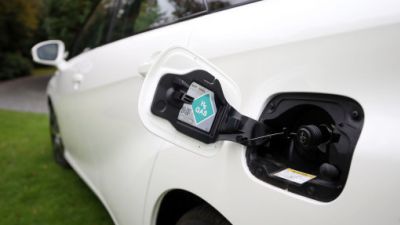UK's first Hydrogen transport hub is set for Teesside

The UK's first Hydrogen transport hub is set for Teesside, creating hundreds of jobs in the region.
The centre will research and test new Hydrogen technologies for cars, buses, trains, lorries, boats and planes.
It is hoped that it will make Teesside a global leader in the green Hydrogen sector, with more than half of the UK’s Hydrogen already produced in the area.
Combined with renewable electricity, Hydrogen can be produced, stored and used to generate heat and electricity without producing any greenhouse gases or air pollutants.
Teesside University’s Pro Vice-Chancellor Professor Simon Hodgson described Hydrogen as "the fuel of the future":
It is estimated that a strong Hydrogen economy could add up to £7 billion to the region’s economy from now until 2050.
The UK’s first Hydrogen Transport Centre would sit alongside plans to build the world’s biggest hydrogen refuelling station in Teesside – plans already backed by the government.
The new hub will sit alongside the new Tees Valley Net Zero Innovation Centre. It will be built next to the TWI Technology Centre in Middlesbrough, in partnership with Teesside University to form a new innovation campus focused on clean energy research and development.
Tees Valley Mayor Ben Houchen said: “I am delighted that, after months of hard work and conversations with ministers, the government has been able to announce today that Teesside will be the place for the Government’s first Hydrogen Transport Centre. This is yet more proof we are the number one place in the country for hydrogen research.
Transport Secretary Grant Shapps said: “As we continue on our road to a green recovery, we know that to really harness the power of transport to improve our country – and to set a global gold standard – we must truly embed change.
“That’s why I’m delighted that through our plans to build back better we are embracing the power of hydrogen and the more sustainable, greener forms of transport it will bring.”
Read more: